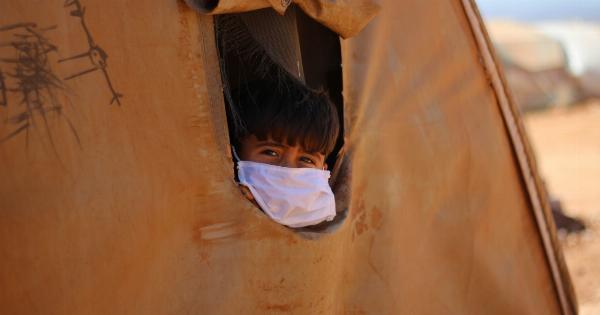Measles is a highly contagious viral disease that primarily affects children. It is characterized by a distinctive rash and flu-like symptoms such as fever, cough, runny nose, and red, watery eyes.
While it may seem like a disease of the past, measles cases have been on the rise in recent years, reaching alarming heights. This article explores the reasons behind the surge in measles cases and the steps being taken to control the outbreak.
Increased vaccine hesitancy
One of the major contributors to the increase in measles cases is the growing trend of vaccine hesitancy. Many parents are choosing not to vaccinate their children due to unfounded fears about the safety and efficacy of vaccines.
This reluctance to immunize has created pockets of vulnerable individuals who are susceptible to measles and other vaccine-preventable diseases.
Travel-related infections
Measles is highly contagious and can spread rapidly, especially in areas with low vaccination rates.
International travel plays a significant role in the spread of measles, as infected individuals can unknowingly carry the virus from one country to another. Unvaccinated individuals who come into contact with the virus during travel are at risk of contracting and spreading measles in their own communities.
Lack of herd immunity
Herd immunity refers to the protection of a population against a contagious disease when a significant proportion of individuals have become immune, either through vaccination or previous infection.
When vaccine coverage rates fall below the threshold for herd immunity, outbreaks can occur. The rise in measles cases can be attributed, in part, to the erosion of herd immunity due to low vaccination rates.
Disinformation and misinformation
The spread of disinformation and misinformation about vaccines has fueled vaccine hesitancy and contributed to the surge in measles cases.
False claims linking vaccines to autism, despite being widely debunked by scientific studies, continue to influence public perception. Social media platforms have become breeding grounds for the dissemination of false information, making it challenging to combat vaccine misinformation effectively.
Weak public health infrastructure
In some regions, weak public health infrastructure has hindered efforts to control measles outbreaks.
Limited access to healthcare, inadequate vaccination programs, and insufficient resources for disease surveillance and response have contributed to the persistence and spread of measles. Improving public health infrastructure is crucial in preventing and managing outbreaks effectively.
Consequences of measles outbreaks
Measles outbreaks can have severe consequences for individuals and communities. Complications of measles can include pneumonia, encephalitis (swelling of the brain), and even death.
Infants, pregnant women, and individuals with weakened immune systems are particularly vulnerable to complications. Outbreaks also burden healthcare systems and can strain resources, diverting attention and funds from other public health priorities.
The importance of vaccination
Vaccination is the most effective way to prevent measles and its complications. The measles vaccine is safe, highly effective, and has been proven to save lives.
It is recommended that children receive two doses of the measles-mumps-rubella (MMR) vaccine, with the first dose given around 12-15 months of age and the second dose between 4-6 years. Vaccination not only protects individuals but also helps maintain herd immunity, thereby preventing outbreaks and protecting vulnerable populations.
Efforts to control the outbreak
To address the ongoing measles outbreak, public health authorities have implemented various measures.
These include conducting vaccination campaigns in affected areas, improving vaccine coverage rates through education and awareness programs, and enhancing disease surveillance and response capabilities. Governments and healthcare organizations are also working to counter misinformation and disinformation about vaccines by promoting accurate and evidence-based information.
The way forward
To bring measles cases under control and prevent future outbreaks, a multi-pronged approach is needed.
This should include strengthening public health systems, ensuring equitable access to vaccines, addressing vaccine hesitancy through education and outreach, and countering misinformation in the media. Collaboration between governments, healthcare professionals, and communities is essential in achieving these goals and safeguarding public health.































